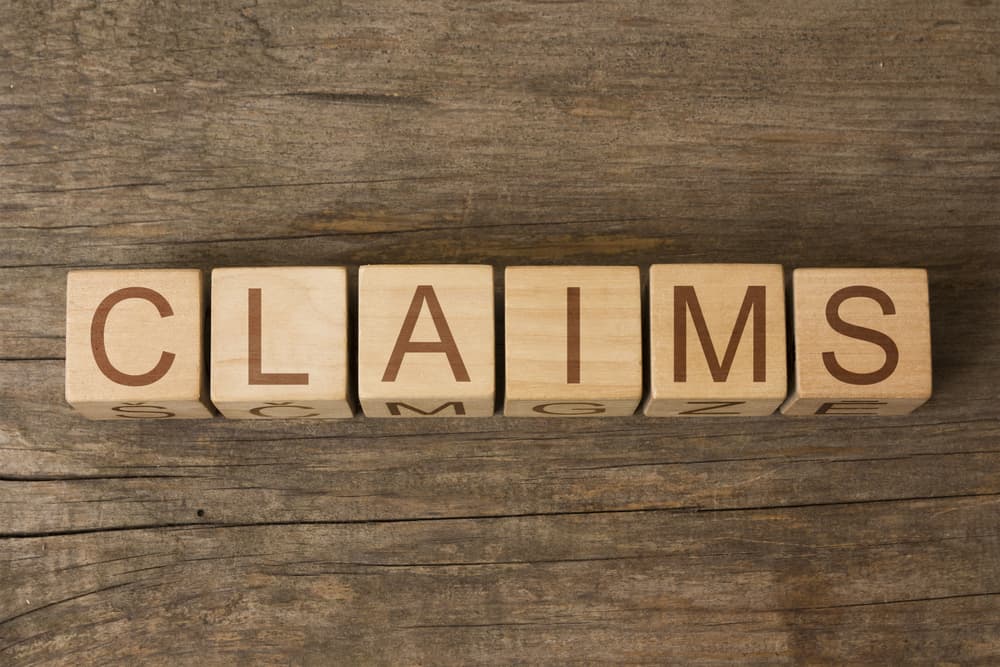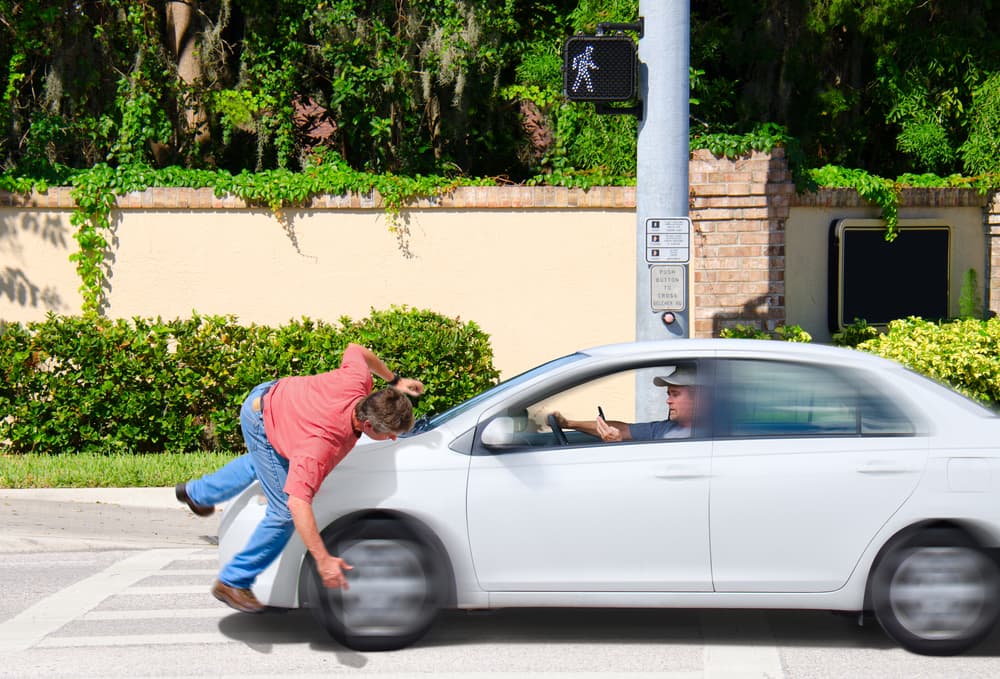If you’re in a car accident, you may feel many effects post-collision. It’s particularly common to suffer physical and mental injuries that can cause other issues, including lost time from work. Therefore, after an accident, your life can feel like a rollercoaster, whether for the long or short term.
For this reason, many accident victims ask: “Can I sue after a car accident?” The answer to this question is generally, “it depends.” If someone else caused your crash, you generally have the right to file a civil lawsuit for personal injury. While you may have the opportunity to file for a lawsuit, you may not even need to in most cases.
A skilled car accident attorney can review the details of your case to determine whether suing after a car crash is necessary and appropriate. If so, you can rely on your attorney to handle your claim and represent you throughout your case.
Filing Suit After a Collision
When you suffer harm in a car accident, you might immediately consider suing the party responsible for your collision. However, whether that’s feasible depends on the details of your case.
Car accident cases are civil cases, not criminal cases, meaning no one goes to jail. Instead, if you settle your case or win in court, the responsible party is financially liable and must pay you for your harm.
It is worth noting, however, that depending on your particular circumstances, your car accident may also have a criminal aspect. The traditional accident scenario, for example, “driver A hit driver B due to negligence,” might not typically involve any criminal aspect.
On the other hand, if, for instance, your collision involved a drunk driver, that driver will likely face criminal prosecution, with their punishment including jail time, probation, or fines. That driver may also face civil liability for their wrongdoing, and you have the opportunity to receive financial compensation. This is because the drunk driver was negligent at the time of your collision, so you’d likely have the right to damages for your resulting injuries and other losses.
If you’re wondering whether you have the right to file a lawsuit for your car accident, hire an attorney for a car accident as soon as possible for personalized legal advice.
When Can I File a Lawsuit After a Car Crash?
Based on the specifics of your accident and claim, you may have the opportunity to file a lawsuit after a car accident. In most cases, you don’t jump straight to filing a lawsuit against the at-fault party, as there may be some steps you need to take pre-filing.
One of the most substantial details that dictate whether you can file a lawsuit is the identity of the liable party. Is the liable party just another driver, a truck driver, or a city employee? Did your accident even involve another party, or did it happen as a result of, for example, defective roadways?
Your car accident lawyer can best determine whether you can file a lawsuit for compensation for your collision-related injuries. The following instances are some of the most common ones involving a potential right to file a personal injury lawsuit.
The At-Fault Driver’s Insurance is Insufficient to Fully Cover Your Damages
If you’re in a collision with another driver, one of the first things you must determine is whether the driver has car insurance. If they do, your car accident lawyer can review the details of their policy to better understand the exact type of coverage they have.
If you are in a no-fault state, you must exhaust your personal injury protection (PIP) coverage first, and then you can file an at-fault claim if you have severe injuries that exceed your PIP limits. If you are in a fault-based state, you will directly file the at-fault claim. In both situations, the at-fault driver’s coverage can affect how you seek recovery.
Some drivers only have the minimum policies that state law requires, which are usually inadequate to cover serious injuries and losses. In this situation, you may have options to obtain additional compensation, including filing a personal injury lawsuit. If filing a personal injury lawsuit is the best course of action, your car accident lawyer can handle everything on your behalf.
The At-Fault Driver Doesn’t Have Insurance
As previously stated, almost every state requires their drivers to carry car insurance. Failure to have insurance in the states that make it mandatory can result in legal trouble. Driving without proper insurance is not only illegal, but it can also lead to serious repercussions for the liable driver, both in criminal and civil court.
When a driver does not have any insurance at all, they have no protection. One of the primary reasons car insurance exists is to protect the insured in case of an accident. Whether the insured themselves needs compensation under the policy or the insured is at fault and therefore financially liable for a collision, car insurance companies should pay out and cover losses when necessary.
If the driver who caused your accident does not have insurance coverage, but you still need compensation for the damages they caused in your collision, you might file a personal injury lawsuit directly against the driver. This is something your lawyer can explore and advise on.
Some states also offer uninsured motorist coverage to policyholders. If you have this type of insurance, which kicks in when you’re in an accident with an uninsured driver, you can receive compensation through your policy. However, you may not have this insurance, and if you do, it may not be enough to cover your damages.
If you pursue a claim with your uninsured motorist policy, you can expect similar challenges as you might face in an at-fault claim. Your insurer is a for-profit company like any other insurance company, and it wants to limit its liability.
When the driver who caused your accident does not have proper auto insurance, it can surely throw a huge wrench in your plans. However, a knowledgeable car accident lawyer can determine how best to handle this situation and pursue the compensation you need.
The Insurance Company Denies Your Claim or Refuses to Settle
 If you’ve ever had to deal with insurance companies, you may know how difficult they can be to communicate and deal with. Insurance companies use several tactics to limit their liability and keep their money. If there is ever an opportunity to avoid paying you what your claim is worth, insurance companies will take it.
If you’ve ever had to deal with insurance companies, you may know how difficult they can be to communicate and deal with. Insurance companies use several tactics to limit their liability and keep their money. If there is ever an opportunity to avoid paying you what your claim is worth, insurance companies will take it.
While this is frequently the case, a strong car insurance lawyer will never lie down and accept defeat so easily. In many situations, your attorney can take legal action against the insurance company to more aggressively pursue monetary recovery on your behalf.
Car crash lawyers know the ins and outs of insurance companies and their schemes, making it easier for them to understand how to beat them at their own game. You can rely on your attorney to do whatever is necessary to obtain compensation from the insurance company whenever possible.
The Lawsuit Process After a Collision
So you have the green light to sue after your car accident now what? Having an understanding of how personal injury lawsuits work can help you get a better idea of what you might expect.
Depending on your case, you may need to start the process by filing a car insurance claim and seeing where that takes you. In other cases, you might move right along with a lawsuit. In either event, your lawyer can create a viable legal strategy for your case.
Sending the Demand Letter
First and foremost, your car accident lawyer will usually start by sending the opposing party, the at-fault driver’s insurance company, a demand letter.
Demand letters essentially demand payment for your damages.
They include plenty of information about your accident, including:
- Details regarding your collision
- How their insured is at fault
- The specifics concerning your injuries and damages
At the end of your letter, your lawyer will include a figure representing your damages and ask for payment.
The insurance company can either agree and pay, engage in negotiations, or deny paying altogether. If your negotiations do not end in a successful settlement, or the company denies your request, your lawyer can proceed with a lawsuit.
Filing Your Lawsuit in Court
If you proceed with a lawsuit, your attorney can draft your petition and file it with the court, along with any other necessary documents and court fees.
Serving the Other Party and Waiting for a Response
Once your attorney files a petition with the court, you must serve the opposing party with copies of court documents. This is a necessary step, as it puts them on notice of the impending lawsuit.
After the insurance company has received the documents, they have a certain amount of time, usually 20 to 30 days, to file a response to your petition. Upon filing their response with the court, your case can officially proceed.
Going Through the Discovery Process
The discovery process is one of the most critical parts of a lawsuit. In this phase, both parties have the chance to request and obtain pertinent information and evidence to help build their respective cases.
Discover often includes any of the following legal tools:
- Requests for admissions
- Requests for production
- Depositions
The discovery process is often the longest part of a lawsuit. It can take anywhere from several weeks to many months to complete.
Once both parties have completed their requests and gotten all of the information they need for their cases, the case can move on.
Engaging in Settlement Negotiations
Many times, after the discovery phase, both parties come together once again to engage in further settlement talk. What’s different from negotiations before is that now the parties have much more information and evidence to work with.
If settlement negotiations are successful, you can settle your case and avoid trial. However, sometimes mediation may come shortly after discovery.
Attending Mediation
Mediation may be necessary or highly recommended, depending on your jurisdiction or the location of your case, but it is not always necessary.
During mediation, both parties work with a neutral third party, a mediator, to come to a fair agreement. Instead of a contentious environment, the mediator tries to foster an amicable, communicative situation where both parties can work together to settle.
If mediation is not necessary or requested by either party, you may skip it. If you attend mediation and it results in a successful settlement, your case is over.
Taking Your Case to Trial
Your case will proceed to court if you do not reach a settlement pre-trial. During a trial, both parties present their cases to the judge and sometimes a jury as well. Based on the strength of the arguments and evidence, the judge or jury can make a decision regarding your case.
If you win, you’ll receive a judgment in your favor. However, in the event your case loses, your lawyer has the option to appeal the decision.
Before Taking Legal Action, Consult an Experienced Car Accident Attorney

After sustaining injuries in a car accident, it can seem tempting to want to jump straight to lawsuits. While the idea of filing suit right away may seem desirable or necessary, a car accident lawyer can point you in the right direction. Your attorney can create a personalized plan of action and tailor their approach to help obtain the most favorable outcome on your behalf.
The law sets a deadline to file a lawsuit after a car accident. Therefore, consult a personal injury law firm in New Port Richey as soon as possible after your collision.



